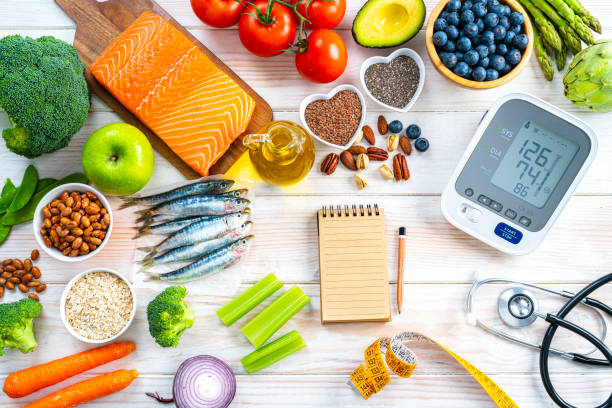The #1 Rated Blood Sugar Formula
Ways to Lower Blood Pressure

High blood pressure raises your chances of having both heart attack and stroke. It’s important to know your numbers because if you have high blood pressure you’ll want to bring those numbers down. Talk to your doctor about the best ways for you to lower your blood pressure.
Here are some things they may suggest.
Lose Weight
You’ll lower your systolic blood pressure (the first number in your blood pressure results) by 5 to 20 points for every 20 pounds you lose. In fact, if you're overweight, losing as little as 10 pounds can help lower blood pressure. The weight loss goal is to get your body mass index (BMI) between 18.5 and 24.9. Weight loss will also help with sleep apnea -- when your breathing briefly stops multiple times while you sleep. (It can raise your blood pressure and make your heart beat irregularly.) Shed pounds slowly with a steady mix of healthy eating and exercise. Keeping tabs on the scale will help your blood pressure take care of itself. Check your readings regularly at home, and try to stay in your target range.Eat Healthy
A program called DASH (Dietary Approaches to Stop Hypertension) is considered by many to be the best diet when it comes to managing and lowering blood pressure. Stick to it and watch your systolic blood pressure drop 8 to 14 points. Its basic rules are to stay away from or cut back on:- Foods high in total and saturated fat
- Processed foods
- Sugar
- Salt
- Carbohydrates
- Caffeine
- Alcohol (no more than one drink a day if you’re a woman; two or less if you’re a man)
Get Regular Exercise
Exercise is the soulmate to eating right. You’re more likely to lose weight if you exercise and follow a healthy diet. Official recommendations call for at least half an hour of exercise most days of the week. The effects can be dramatic: blood pressure drops of 4 to 9 points. Remember that exercise isn’t just going to the gym. It can be gardening, washing your car, or housework. But things that get your heart rate up -- aerobic activities -- like walking, dancing, jogging, riding your bike, and swimming are best for your heart.
Reduce Your Sodium Intake
It’s a prime offender in raising blood pressure. The American Heart Association recommends that people with hypertension keep it under 1,500 milligrams a day. Check your food labels to see how much you’re getting. If you cut back gradually, you’re less likely to notice the difference. Limiting sodium to just 2,400 milligrams per day can lower your number 2 to 8 points. One way to cut back is to prepare your food at home. Seventy-five percent of your sodium intake comes from eating out and packaged foods. Use more spices for flavor instead of salt. Eating more potassium (found in foods like bananas, raisins, tuna, and milk) helps move sodium out of your body. A small effort can bring blood pressure down as much as two to eight points.“It may take a month to six weeks to bring your blood pressure down by slowly raising your medication doses,” Durso notes. “Lowering blood pressure too quickly can cause dizziness and increase the risk for falls.” Report side effects. “Don't stop medications on your own,” warns Durso.






